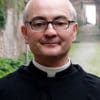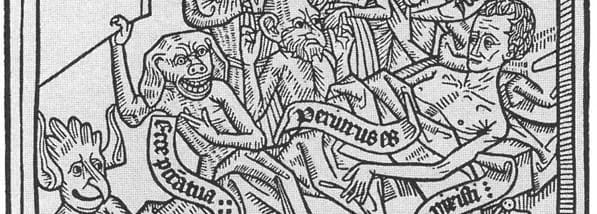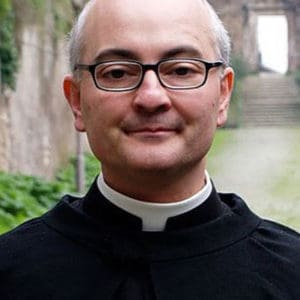Father Fortea, what is eternal death?
 The human soul, as a spiritual reality, is immortal (see Catechism paragraph 366). Like any spirit, it is not subject to decay or illness; it cannot grow old or wear out. No matter what sins people commit, their souls cannot die in a metaphysical sense. They will exist forever. Where they will exist forever – heaven or hell – is another matter.
The human soul, as a spiritual reality, is immortal (see Catechism paragraph 366). Like any spirit, it is not subject to decay or illness; it cannot grow old or wear out. No matter what sins people commit, their souls cannot die in a metaphysical sense. They will exist forever. Where they will exist forever – heaven or hell – is another matter.
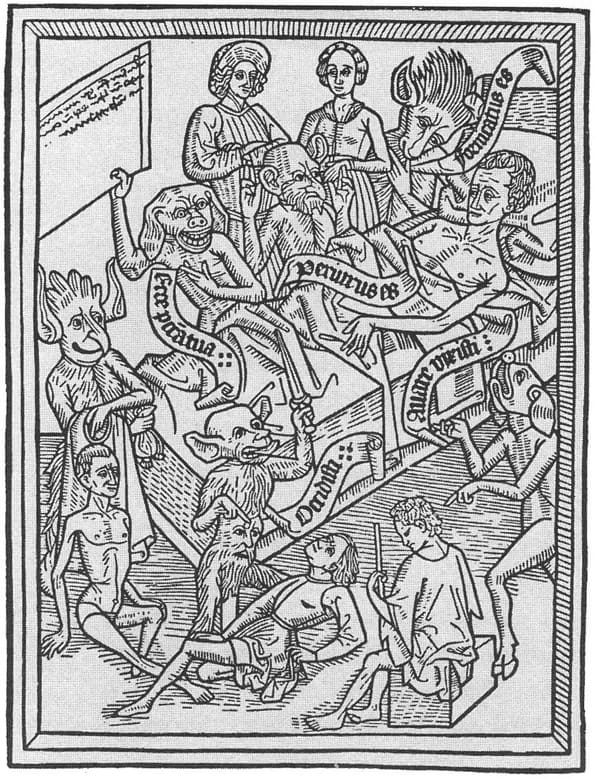 When we use the expressions “mortal sin,” “death of the soul,” or “eternal death,” we are speaking of the death of the soul’s supernatural life, i.e., the life of God’s sanctifying grace (see CCC 1861). As Christians, we are admitted to this life of grace in baptism, and we are strengthened in grace through the sacraments, particularly the Holy Eucharist and confession. Mortal sin destroys this supernatural life, but the soul continues to exist in its natural state. The intellect and the will, with all their natural powers, continue to work, but there is no life of grace remaining within the soul.
When we use the expressions “mortal sin,” “death of the soul,” or “eternal death,” we are speaking of the death of the soul’s supernatural life, i.e., the life of God’s sanctifying grace (see CCC 1861). As Christians, we are admitted to this life of grace in baptism, and we are strengthened in grace through the sacraments, particularly the Holy Eucharist and confession. Mortal sin destroys this supernatural life, but the soul continues to exist in its natural state. The intellect and the will, with all their natural powers, continue to work, but there is no life of grace remaining within the soul.
Thus, many people are “alive” only on a purely natural level, without the supernatural life of grace that God willingly offers them. Without God’s grace, one cannot be admitted to the eternal life of heaven; such a soul “dies” eternally in hell.
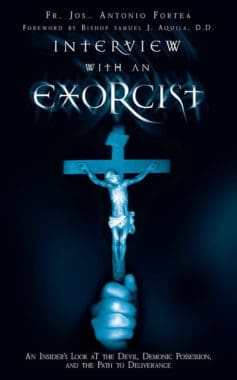 Editor’s Note: To learn more about spiritual warfare and demonology, Catholic Spiritual Direction recommends Fr. Fortea’s excellent book Interview With An Exorcist – An Insider’s Look at the Devil, Demonic Possession, and the Path to Deliverance
Editor’s Note: To learn more about spiritual warfare and demonology, Catholic Spiritual Direction recommends Fr. Fortea’s excellent book Interview With An Exorcist – An Insider’s Look at the Devil, Demonic Possession, and the Path to Deliverance
+
Art for this post on what is eternal death: Demons showing a dying man his sins on a medieval engraving, author unknown, Middle Ages, copyright expired, PD-US author’s life plus 70 years or less; detail of Padre José Antonio Fortea 2017, photographed by Elgatoconbotaselgatoconbotas, 5 May 2017 own work, CCA-SA 4.0 International; both Wikimedia Commons. Cover of “Interview with an Exorcist” used with permission, all rights reserved.


